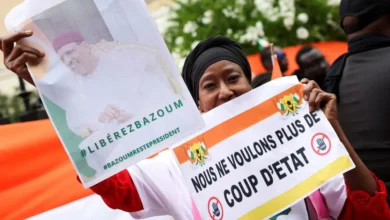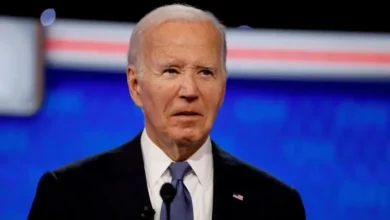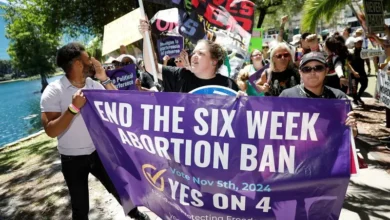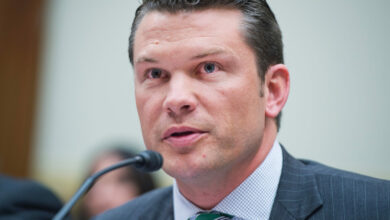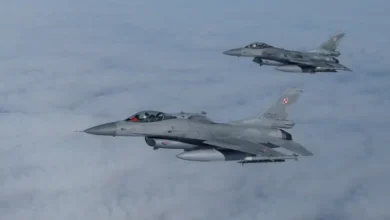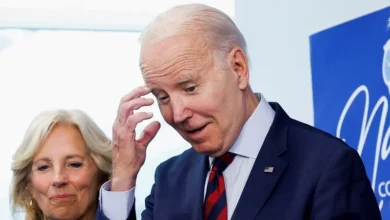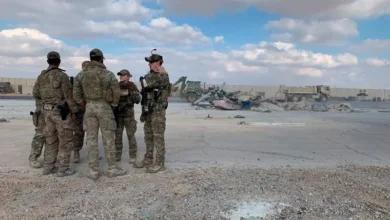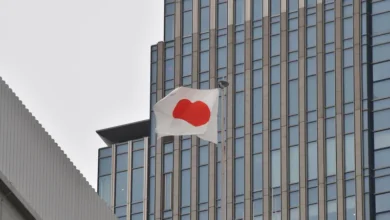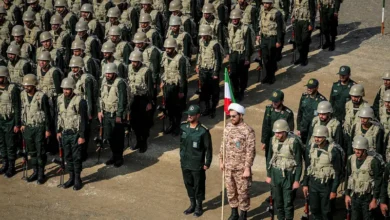Anti-Modi alliance in India faltering as election dates are finalized
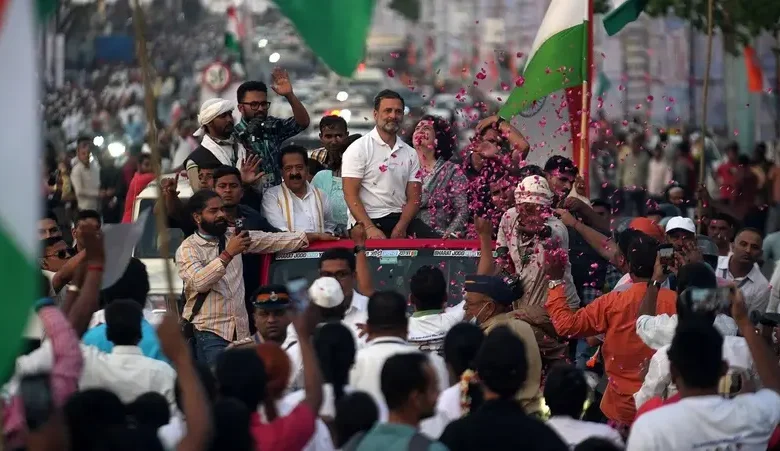
Rahul Gandhi, the face of India’s political opposition, concluded a 65-day trek across the breadth of India on Sunday, a day after the country’s electoral body announced the dates for the six-week long national elections starting April 19.
Gandhi, a scion of the Nehru-Gandhi dynasty, and one of the top leaders of the main opposition party, the Indian National Congress, has been traveling across 15 states by bus and an open-roofed SUV from the north-eastern state of Manipur to the financial capital Mumbai, holding small gatherings where he’s often addressed crowds from his car.
At the rally in Mumbai on Sunday, Gandhi launched a blistering attack on Prime Minister Narendra Modi and his Bharatiya Janata Party, accusing it of widespread corruption.
Referencing the everyday corruption experienced by many Indian citizens, Gandhi accused the BJP of doing so at “a national level.” Gandhi was alluding to recent revelations regarding corporate political donations, much of which had until recently been opaque and anonymous. The BJP was the biggest recipient of the donations.
India’s finance minister last week defended the electoral bonds, saying cash received under the system was “legitimate.”
Gandhi also lambasted the government — as he has for months — for failing to tackle unemployment, crony capitalism, and the lack of representation of social and backward classes in India.
It’s unclear if these Congress attacks will resonate with voters any better than they have in the last two national elections, which the BJP won in a landslide. During state elections last year, the party attempted to deny Modi a unified Hindu vote by playing up the disadvantages faced by lower caste Hindus. The Congress lost three key states it was widely expected to win.
Even as the party gears up for elections scheduled to start in just four weeks, it and the more than 20 opposition parties that have aligned together to challenge Modi, seem to be on the back foot as they appear unable to pose a credible threat to Modi’s BJP.
The I.N.D.I.A. alliance — as it is dubbed — was created last year with much fanfare in the hopes of uniting the country’s disparate opposition parties. The biggest party in the alliance — the Congress party — is cash-strapped, key members of the grouping have defected to the BJP and the opposition alleges that government agencies have targeted its leaders with investigations and arrests.
The Congress’ loss in those three key state elections meanwhile seems to have deflated the alliance, while bringing into question the party’s ability to lead the smaller, regional parties.
At the heart of the alliance’s troubles appears to be the absence of a clear vision that presents the Indian electorate with an alternative to the BJP, according to members of the alliance and analysts.
“When you build an opposition alliance, you start with a political arrangement, political agreements, seat-sharing,” Gilles Verniers, a senior fellow at the Delhi-based Centre for Policy Research, said by phone. “But you also have to define a common plan or build a coherent opposition narrative that you can present to vot-ers.”
Modi seems acutely aware of this — and has been hammering the point home at campaign events. “The Congress party has no agenda for the country’s future besides abusing Modi,” he said to the crowd at a campaign event in his home state Gujarat.

Analyst Rasheed Kidwai believes the opposition, starting with the Congress party, need to break out of that cycle.
“I think the Congress should get into a very solid campaign because this negative campaign has limitations and they should go to a positive agenda,” said Kidwai, author of 24 Akbar Road, a history of the Congress party.
Another issue, say analysts, is that the Congress is yet to campaign aggressively alongside other alliance members, or figure out a way of pooling resources. Case in point is Gandhi’s multi-state journey, where he has been campaigning largely on his own — though the event in Mumbai did feature many other key alliance leaders.
Kidwai suggests the parties work jointly, though the time to do so now is limited. The Election Commission announced on Saturday that voting for the first phase of the elections will begin on April 19 with votes counted on June 4.
Discussions on alliance-building and the division of seats between the various parties has dragged on for months, amid lingering mistrust between the Congress and the regional parties. Some sporadic announcements are only now starting to trickle in.
The gelling of an “alliance and constituencies is not as easy” as it might appear from the outside, said Priyanka Chaturvedi, a member of India’s upper house of parliament with a regional party from the western state of Maharashtra. Her party, the Shiv Sena (UBT), is a member of the alliance. Chaturvedi said the alliance has “moved leaps and bounds in establishing that faith, establishing the nuances and as well as seat allocation.”
The Congress party declined to comment.
Meanwhile, the alliance’s struggles have been compounded by the loss of key politicians to the BJP. Dozens of leaders from national and regional parties have switched sides over the past few years, and in recent days and weeks. Many have jumped on the winning Modi bandwagon. In January, one of the architects of the alliance defected back to Modi’s BJP.
Verniers describes it as the BJP’s “open-door policy” where they try to “cannibalize other parties by engineering defections.” The BJP has even managed to split parties at the regional level — attracting not just top leaders but a large number of legislators as well.
The opposition alleges some of the defections have taken place under pressure from the countries’ investigative agencies. Numerous opposition politicians have been arrested or are under investigation by the federal anti-money laundering agency, the Directorate of Enforcement.
The chief minister of India’s capital, who is under investigation by the agency, in a recent statement, accused the BJP of targeting state and national lawmakers. “One by one, they (BJP) are putting opposition leaders in prison. There will be no one left to fight in the elections,” said Arvind Kejriwal. “BJP does not win elections, they steal them.”
Over the decade the BJP has been in power, the number of registered cases by the federal agencies have risen as conviction rates have plummeted, according to statistics released by the government. Meanwhile, 95 percent of cases filed against politicians for graft and money laundering target opposition politicians, according to a report by an Indian media house.
The BJP has previously denied targeting opposition leaders for political gain and said the government pursues all allegations of impropriety.
As damaging as such tactics might be to the opposition it’s possible that voters will see through them.
“All these things have a potential to boomerang,” said Kidwai, referring to the vendetta politics.
Modi and his party, meanwhile, are increasingly bullish about sweeping the elections. Modi has been campaigning vigorously, and has promised projects worth billions of dollars over the last two months. Government schemes and projects are regularly marketed under his name, and are often festooned with Modi’s visage. India has the fastest-growing major economy in the world, helped in part by enormous geopolitical tailwinds, which has investors — and by some measures, voters — excited. Last month, Modi inaugurated a controversial temple in a town in northern India — an event broadcast across the nation — fulfilling one of his party’s key promises.
The party’s coffers are the deepest; the recent electoral bonds revelations show that the BJP has received almost half of all donations. In contrast, the Congress got about 11 percent of the funds.
The Congress also says it is cash-strapped after the federal Income Tax agency froze some of its funds for past delays in filing its returns.
Even as the opposition alliance appears to be struggling, and is competing against the most popular politician in recent Indian history — Modi’s approval ratings are near 80 percent — Kidwai notes its too early to write the election off, or to discount the Indian electorate.
“I’m saying the election is not settled. Advantage, BJP? Yes!” said Kidwai. “Conventional wisdom is saying Modi is coming, but an Indian voter is unpredictable.”
